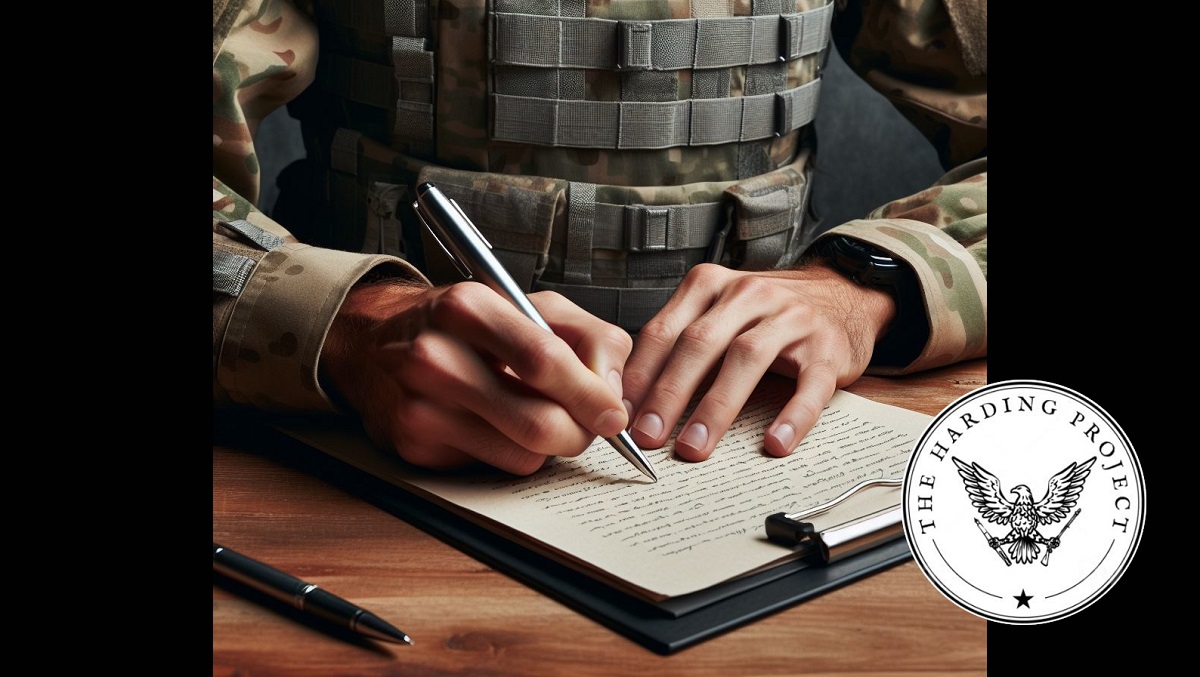
Whether putting pen to paper or fingers to the keyboard, writing clarifies and improves ideas while also allowing those thoughts to be shared with others. But the idea of publishing one’s thoughts can be intimidating. Why does it seem so hard to get thoughts down on paper? And how do you approach an editor? How do you even get started? Zach Griffiths and Theo Lipsky are in the studio to explain why you absolutely should share your ideas more widely. They join our Editor-in-Chief, JP Clark, to discuss publishing for professional purposes and the Chief of Staff of the Army’s (CSA) Harding Project an effort to renew professional publications, strengthen the profession, and ultimately enhance the warfighting capability of the U.S. Army.
The design of social media platforms is such that don’t induce quality thought…they’re meant to retain user attention. There are certain emotions that best sustain user attention and they’re not the emotions that one associates with meaningful dialogue. They are anger, and they’re shock and they are betrayal and it perverts dialogue.
Podcast: Download
Subscribe: Apple Podcasts | Spotify | Amazon Music | Android | Pandora | iHeartRadio | Blubrry | Podchaser | Podcast Index | TuneIn | Deezer | Youtube Music | RSS | Subscribe to A Better Peace: The War Room Podcast
Zachary Griffiths directs the Harding Project to renew professional military writing. A career Special Forces officer, Zach has deployed to Afghanistan and Iraq, served on the National Security Council as a White House Fellow, and taught American Politics in the Department of Social Sciences at West Point.
Theo Lipsky is a U.S. Army Captain. He has served in Stryker and airborne units in Washington State and Germany. He currently studies at Columbia University’s School for International and Public Affairs ahead of a teaching assignment in the Department of Social Sciences at West Point. While a student he has assisted with the Harding Project.
JP Clark is an associate professor of military strategy teaching in the Basic Strategic Art Program. He served in the army for twenty-six years as an armor officer and strategist. He holds a Ph.D. and M.A. in history from Duke University, an M.S.S. from the Army War College, and a B.S. in Russian and German from West Point. He is the author of Preparing for War: The Emergence of the Modern U.S. Army, 1815-1917 (Harvard, 2017). He is currently working on a history of U.S. military strategy in the Pacific from 1898 to 1941 that is under contract with the University Press of Kansas. He is the 3rd Editor-in-Chief of War Room. Follow him on Twitter @JPClark97.
The views expressed in this presentation are those of the speakers and do not necessarily reflect those of the U.S. Army War College, U.S. Army, or Department of Defense.
Photo Credit: Generated with Bing AI





Great podcast, Gents. Indeed, there is much to still say about our profession of arms!
Thanks again, JP for assisting me in a publication last year – you are authentic in your enthusiasm and passion for helping many get to publication, especially practitioners.
Keep up the great work, Zachary, Theo and J.P.!
Some professional writers say you have to write 1,000,000 words to become proficient. In my opinion, the presenters should have emphasized that, as some say, we are in a New Industrial Revolution. This calls into question what are all branches of service doing to support organizational adaptability? We have to understand the human component of what is “History?” A US Army researcher says that an accurate history has three elements. The event has to be properly encoded for storage, undergo a period of social correction and accurately retrieved from storage.
One former official says that the whole US government needs to rebuild the capabilities for public policy engineering. As we saw in the early career of Dwight D. Eisenhower, there were those who were into empire building. One concern in our current age, is that many officers have been serving in units for 10 or 15 years and with new technology, they are obsolete in their professional career. This happened before WWII. Where do we have the innovation to develop new tactics and strategies in our current environment. Will the US Army and officers who have made a specific arms their career be able to change and adapt?
Further, we need to understand that we face Radical Uncertainty which admits no probabilistic reasoning. Some such reasoning makes sense at a gambling casino but not on a battlefield.
Are we able to overcome our specialization to have informed judgment? The Super Forecasting Project says unfavorable things about the ability of people with access to classified data who make worse predictions that civilians!
Misremembering the Holocaust: The Liberation of Buchenwald and the Limits of Memory by George R Mastroianni
Modern rhetoric by Brooks, Cleanth and Warren and Robert Penn
The AEF Way of War: The American Army and Combat in World War I by Mark Ethan Grotelueschen
On Combat, The Psychology and Physiology of Deadly Conflict in War and in Peace by Dave Grossman and Loren W. Christensen
Radical Uncertainty: Decision-Making Beyond the Numbers by John Kay and Mervyn King
Superforecasting: The Art and Science of Prediction by Philip E. Tetlock and Dan Gardner
The Making of a General: Ike, the Tank, and the Interwar Years
Patton, wealthy and friends with several influential individuals within Army circles (including Secretary of War Newton D. Baker), had fewer problems with his innovative writings than those experienced by Eisenhower. Patton went off to rejoin the Cavalry rather than be reassigned to the Infantry when the 1920 National Defense Act did away with the Tank Corps and placed tanks under the Infantry branch. Eisenhower’s writings in the Infantry Journal found disfavor with the Chief of Infantry, MG Charles S. Farnsworth, who told young Eisenhower that his ideas were wrong and dangerous. Farnsworth added that if he published anything further incompatible with “solid Infantry doctrine,” he would be hauled before a court-martial. One may remember that during the same interwar era, the Army attempted to stifle BG Billy Mitchell’s revolutionary ideas on airpower. Unlike Eisenhower, however, the Army court-martialed Mitchell for insubordination and brought an end to his distinguished military career.
https://armyhistory.org/the-making-of-a-general-ike-the-tank-and-the-interwar-years/
Optimising Human Performance
https://wavellroom.com/2024/05/08/optimising-human-performance/?vgo_ee=ZXtlTB4VGGRT9oLO6JkHR5TZylPY0ApMHQX5ykeEOSUhJkpxh3FVZLa7NQk%3D%3ACUUnReQntDkGaphq6Pw94FAJE0PCeWon
Parkinson’s law
https://www.economist.com/news/1955/11/19/parkinsons-law
To Regain Policy Competence: The Software of American Public Problem-Solving by Philip Zelikow
https://tnsr.org/2019/09/to-regain-policy-competence-the-software-of-american-public-problem-solving/
Where Does the Best Innovation Happen? Not in Stand-Alone Labs, Some Companies Say: As businesses consider how to tackle generative AI, the once trendy idea of a startup-style innovation group is fading for some By Isabelle Bousquette April 10, 2024 7:00 am ET
https://www.wsj.com/articles/where-does-the-best-innovation-happen-not-in-stand-alone-labs-some-companies-say-e9b4cf0b